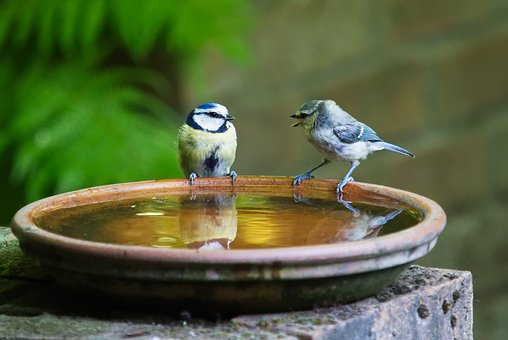
Early Literacy: Perspective & Pursuit
The comedy-drama series This is Us is a great example of viewing the same story from multiple angles. Perspective… shifting the focus to empathize from a different viewpoint. Or as main character Atticus Finch described in bestseller & prize-winning novel To Kill A Mockingbird: You never really understand a person until you consider things from his point of view… until you climb into his skin and walk around in it.
There are many perspectives on early literacy. Chirp’s is summarized in the phrase the pursuit of literacy. In other words, the pursuit of a literate world begins with the pursuit of early literacy. Early literacy is the earliest & most universal strategy for developing language & learning skills.
That said, it is never too late to begin pursuing literacy, and as the definition of literacy itself is expanding, it is becoming simultaneously more important, more simple & more challenging to pursue both literacy & early literacy today. Neither will just happen, they require pursuit!
Early Literacy: Paths & Puzzle Pieces
Just as perspective reminds us each person has something to bring to the table, so the unique developmental needs of each child reminds us there are many paths to literacy. At the same time, the clues to each specific path become easier to find in light of the whole.
Each unique situation matters, shedding a bit more perspective on the bigger early literacy picture. It will only be as we listen & learn that we will begin to glimpse what is truly universal, what isn’t, & what might work best in your specific context.
You can think of early literacy like a puzzle. Each piece is a clue. The part in front of you may look quite different than the part in front of me, and it will only be as we work together that the whole picture will begin to make sense.

The Four Corners of Early Literacy
Not everybody begins a puzzle by searching for the corner pieces, but no matter when the corners are found, they intersect the rest of the puzzle in a unique way. From where I sit there are four early literacy corners, each one a perspective from which to view the bigger picture.
- Early Communication
- Early Development
- Early Education
- Literacy itself
You might think of each of these in terms of a person who would represent this perspective. For instance, a speech pathologist (early communication), a pediatrician, parent or occupational therapist (whole child development), a teacher (early education) & culture (view of literacy).
If you asked each of these people what communication means, you would hear an answer based on their own experience. Because we relate to others out of our own stories, it can be helpful to clarify how we understand & intend specific terms. Clarifying the meaning of well-known words is perhaps even more necessary than clarifying new words, as we often make assumptions we are using familiar terms in the same way. Read more about Clarity in Conversation or defining one of these key terms…
Corner #1: Early Communication
You can view early literacy from the perspective of language, story & communication. A speech therapist might work with a preschooler to practice pronunciation, or a counselor might help a parent & child toward conflict resolution.
Oral language is a building block for literacy that begins with infants. Communication is an integral part of how we process & experience our world (including written text). At its’ root, communication is an exchange of information, and always occurs in the context of relationship.
Communication always involves conversational turns, speaking & listening. We all communicate in universal & unique ways.
Language is the universal means by which we communicate. The term early communication can refer to either
- the historical roots of language or to
- conversation including at least one child
This site discusses both aspects of early communication.
Read What is Early Communication?
Corner #2: Early Development
You can view early literacy from the perspective of development.
Corner #3: Early Education
You can view early literacy from an educational perspective.
Education is intentional communication about developmental growth, and always includes opportunity for practical application. Just as communication is conversational turns, both speaking & listening, so education encompasses both teaching & learning. By teaching, we mean instructional methods; by learning, we refer to both capacity & opportunity to receive instruction.
Everyone is both a teacher & a learner. Places of early learning in the U.S. often group children by age, such as: infants, toddlers, preschool, primary.
Corner #4: Literacy
Finally, you can view literacy based on context.
Basic literacy refers to two separate, yet related written language processes, reading & writing. Reading involves deciphering & understanding written language while writing means producing written language.
Just as development is always connected to learning, literacy is becoming increasingly associated with learning in a capacity beyond written language. Read Literacy Then & Now
Summarizing Chirp’s Early Literacy Perspective
The pursuit of literacy is a specific kind of education involving conversational turns & regular opportunities related to language development and learning.
Pursuing early literacy means identifying & seizing these opportunities for intentional conversation & practical application. Thus,
any opportunity to develop language skills and/or learning capacity is an opportunity to pursue literacy.
P.S. We’d love to hear your early literacy stories, questions or ideas – head on over to our facebook page
